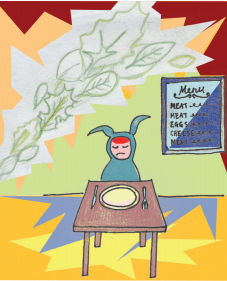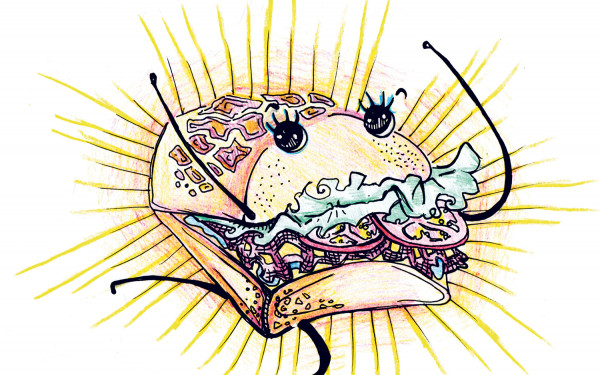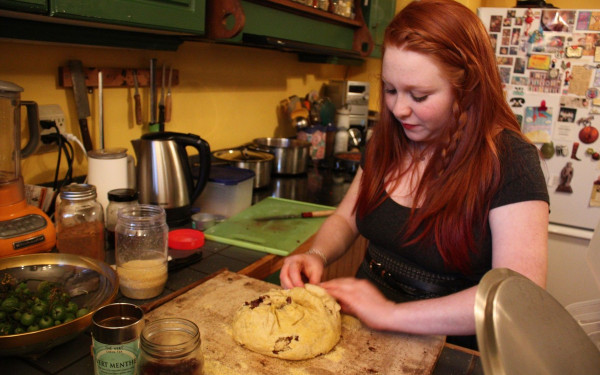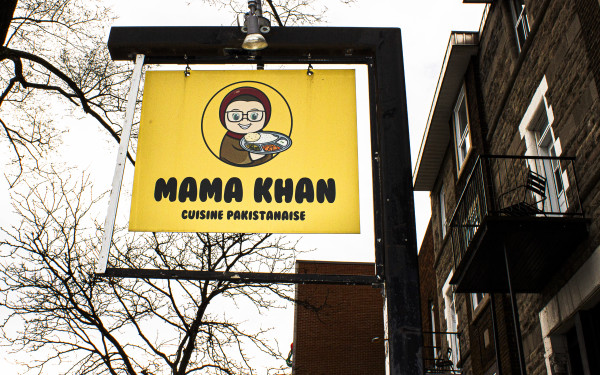Living La Vida Vegan
Why Sustainability at Home Starts on our Plates
“How do you spot a vegan? Don’t worry, they’ll let you know.”
Following the everlasting tradition, I have decided to be vocal about my change of diet—or more exactly, my attempt to. Vegans abstain from consumption and use of all animal products for ethical reasons.
So why did I decide to give it a try?
The COP21 Climate Change Conference started on Nov. 30, and environmental issues are in the spotlight—for a few days at least—before they go back where they belong: the depths of indifference and political hypocrisy.
World leaders and delegates from 195 countries are meeting in Paris to discuss climate change with the goal of achieving a legally binding agreement in regards to climate policy. Just like every year since 1995, when the first U.N. Conference of the Parties was held, it will most likely be the opportunity for never-ending negotiations, leading to an insufficient and disappointing plan of action.
Hundreds of thousands marched around the world, asking for action against climate change and refusing to wait for the international response.
Protesting global warming is a citizen duty to me. If you are a human being planning to live on the planet for the next decades, you should care.
However, one recurring element struck me during discussions with environmental activists—some hypocritically ignore how to reduce their carbon footprint.
The basics of saving energy at home usually involve turning the light of, reducing the length of showers, prioritizing public transportation and waste sorting. While these are all valuable initiatives on an individual scale, the point is being missed.
The truth is, the biggest impact one can make on a daily basis lies on a plate. The most immediate way to fight global warming is to switch to a vegetarian or vegan diet.
Animal agriculture is responsible for more than 18 per cent of greenhouse gas emissions, according to the Food and Agriculture Organization of the United Nations.
It is also a waste of resources, since producing one kilogram of animal protein takes nearly 15 times as much water, 12 times as much land and 13 times as much fossil fuels as producing one pound of soy protein, according to the American Journal of Clinical Nutrition.
Giving up meat itself could reduce one’s carbon footprint by 50 per cent.
Giving up meat itself could reduce one’s carbon footprint by 50 per cent.
While a vegan diet might not be for everyone, being aware of the environmental cost of meat and choosing to remove it from your plate regularly has a considerable impact. In fact if everyone in the U.S. would avoid meat and cheese only one day a week for one year it would have the same impact as taking 7.6 million cars of the road.
Putting it to practice requires us to educate ourselves and go against cultural habits. But what about hachis parmentier, veal ragout, foie gras, mussels, steak tartare, beef stew, duck breast? Trust me, as a French person, I would know. I’ve been raised to cook, eat and cherish meat. I’ve always considered vegans to be impenetrable beings, surely deprived of taste buds. Food is a sensitive matter.
The main difficulties I encountered as I tried to make the transition came from my environment:
Day 1: dinner at a friend’s place. Someone just came back from Italy and one kilo of parmigiano is staring back at me from across the room. Oh the pain, the temptation!
Day 3: an invitation to a raclette party. For those who don’t know, raclette is a type of cheese and a dish at the same time. It is basically an orgy of melting cheese, accompanied with potatoes and ham. Damn French people.
Day 5: my brother takes me out for lunch. He refers to veganism as “food terrorism” and orders a duck.
Day 6: a friend kindly explains to me that he thinks there is a reason behind the absence of vegans in his friends, and that he won’t be able to invite me for dinner anymore since he doesn’t know “how to substitute bananas for eggs.”
Day 7: my family still doesn’t understand that fish is an animal product. For someone who has devoted her life to food and people, it looks like I’m in for a rough time. To not be invited for dinner anymore was not part of the sacrifice I was planning to make.
Luckily, cooking at home was easier than planned. Grains, nuts, fruits, vegetables: everything needed for a balanced diet can be found in any traditional grocery store.
For days I’ve wanted to spice things up with tempeh or fake cheese (this was a mistake I’d rather not talk about further). Concordia’s campus is surrounded by accessible options. Ecoloco and the Frigo Vert face each other on Mackay St. and both offer student discounts and People’s Potato offers free vegan lunch every weekday in the Hall building.
Living in Montreal offers a wide range of possibilities and the Plateau also has a multitude of restaurant options. From the classical Aux Vivres, to Végo, Chuchai, Yuan or Le Nil Bleu, it’s easy to indulge.




.WEB_600_375_90_s_c1.jpg)


